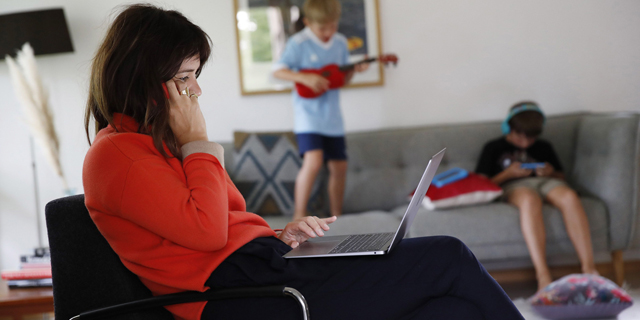
Family matters: home dynamics impact decisions to leave jobs after lockdowns
People with no children or older children are more likely to look for a new job if they are forced to go back to the office, a new report by Israeli company Tikal has found
Ma'ayan Manela | 10:31, 06.05.21
Some 65% of organizations have adopted a fully or hybrid-remote policy over the past year, but only 30% reimburse their employees’ remote-work related expenses, a report titled "The Remote Work Report" released by Israeli company Tikal, based on a survey of 600 tech professionals, has revealed.
According to the report, it appears that people with no children or older children are more likely to look for a new job if they are forced to go back to the office. Unsurprisingly, family status is a significant factor in the decision whether or not to relocate or look for another job. People without kids are more likely to move closer to the workplace if they can’t work remotely, rather than look for a new job. People with older children are even less likely to relocate. Even more so, the older the kids are, the more likely these people are to look for a new job if their workplace will not allow working remotely. All in all, 46% across all verticals reported that they will keep their current jobs and resume commuting to their workplace.
It appears that a person’s role and seniority also play a role in the decision whether or not to retain their position. For example, junior developers are twice as likely to relocate closer to the office than others.
Managing at-home distraction is one of the biggest challenges people face while collaborating with their colleagues remotely, non-dependent on their family composition. That being said, the majority of employees report that they are able to accomplish their tasks and would recommend remote work as the future of working. This may be due to the fact that most of them feel that they get the agency, autonomy, processes, and tools to work remotely from the leadership, while only 25% experience Zoom fatigue.
Reviewing the emotional aspects of remote work, the majority of employees reported that they experience a sense of loneliness and burnout, surprisingly even those with families. This feeling increases from one child to 2-3 children. Breaking the numbers down by domains, the report found that DevOps engineers feel more capable of accomplishing their tasks while feeling most isolated/lonely. Full Stack developers reported that they manage to collaborate with colleagues. In terms of family composition, employees with more than one child feel that their employers are more understanding towards them in terms of remote work.